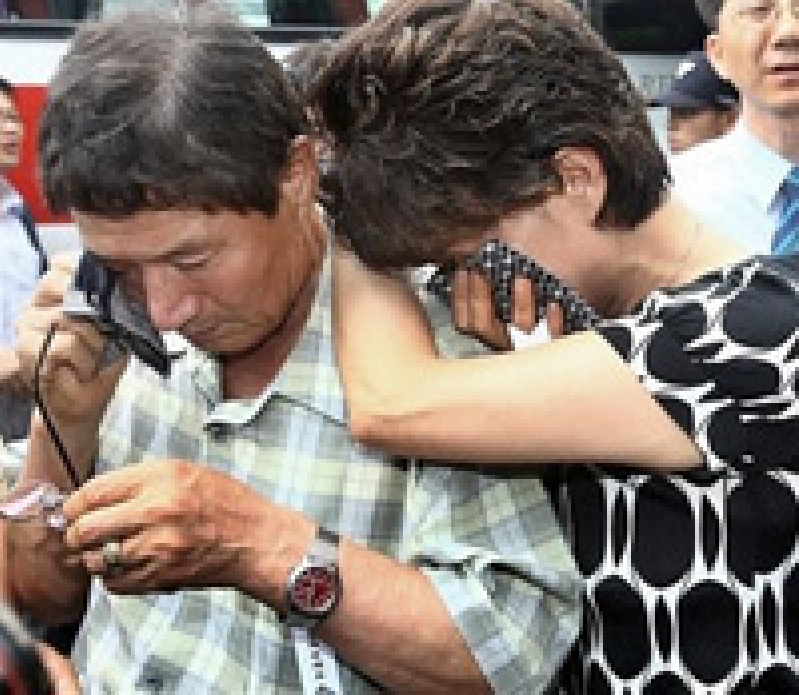
An Afghan official said 21 kidnapped South Koreans were still alive Wednesday after the Taliban’s latest deadline passed and as new reports revealed that the government was preparing to launch a rescue mission.
“The hostages are alive,” said Khowja Seddiqi, district chief of Qarabagh in Afghanistan’s Ghazni province, where the hostages were abducted last month.
Furthermore, “[t]he national army has dropped leaflets through helicopters telling people in several districts to evacuate their houses because it wants to launch an operation,” he said, according to Reuters.
A deputy interior minister on Saturday told Reuters that force might be used if talks with the Taliban failed, though the militant group has warned that any effort to rescue the hostages would result in the hostages’ deaths.
The defense ministry could not be reached immediately for comment regarding the latest news.
Nearly a dozen deadlines have passed since the 23 Korean Christian volunteers were abducted in Ghazni on July 19, with the most recent deadline set for Wednesday noon (3:30 a.m. EDT). Two male hostages have been killed so far with the latest death on Monday.
Taliban militants have blamed the Afghan government for the deaths of the two male victims, accusing the government of cheating and drawing time.
“The Afghan government just wants to make us angry, and push us to kill all the hostages at once to bring an end to the crisis,” vented Mullah Sabir Nasir, a senior Taliban commander in Ghazni province, to CBS on Tuesday.
Nasir holds one of about 30 seats on the Taliban’s “supreme” council of leaders.
The Taliban is demanding the Afghan government release rebel prisoners in exchange for the hostages, but Afghanistan has refused, saying that it does not want to set a trend of releasing prisoners every time the Taliban kidnaps someone.
"We shouldn't encourage kidnapping by actually accepting their demands ... In this situation we are doing what is the best for the interests of the hostages, and government," said Humayun Hamidzada, spokesman for Afghan president Hamid Karzai, according to Reuters.
"If we keep on responding positively to the demands of terrorists, we will face more problems," he added.
Karzai had received criticism from the United States and European nations after he exchanged five Taliban fighters for an Italian reporter in March. He has vowed that the trade was a one-time deal.
Although talks on the fate of the South Koreans continued Tuesday, a member of the government’s negotiating team told AFP there has been little movement. Family members of the hostages and the South Korean government, meanwhile, pleaded with the United States to become more active in efforts to save the remaining 21 victims.
"The United States' influence on the Afghanistan government is extremely important. It can play a necessary role in exchanging the Korean hostages for Taliban prisoners," said Kim Won-wung, a senior lawmaker with the pro-government Uri Party.
South Korean political leaders will visit the United States this week to plead for help in freeing the 21 Korean hostages, officials said Wednesday, according to Agence France-Presse.
However, a U.S. State Department spokesman has already stated that Washington "does not make concessions to terrorists," according to AFP.
In an update Wednesday, purported Taliban spokesman Qari Yousuf said the majority of hostages are ill with two females seriously ill and facing possible death.
Yousuf said the two women suffered from an unknown illness and the insurgents do not have the right medicines to treat them.
Although Afghan President Hamid Karzai and other Afghan officials have tried to shame the Taliban into releasing the female captives by appealing to a tradition of cultural hospitality and chivalry, Yousuf told the Associated Press that the next victim “might be a man or a woman.”
“It might be one. It might be two, four. It might be all of them,” Ahmadi reportedly said.
The kidnapping of the 23 South Korean Christians was the largest abduction of foreigners in Afghanistan since the fall of the Taliban regime in 2001.






